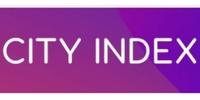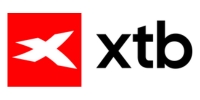Comparing CFD brokers is one of the most fundamental and basic decisions any trader has to take. You could bear in mind CFD providers are different in the range of services and markets they offers, and in the way they structure these services for clients, but, fortunately, the nature of competition means that some platforms are definitely better than others. What’s more, with the recent explosion in the sheer number of CFD companies appearing on the scene, it has never been more important to compare and contrast the various options on several key criteria. The comparison table covers ONLY reputable and regulated CFD brokers.
CFD Broker Comparison
Broker

Markets
Platforms
Open Account
70% of retail investors lose money when trading CFDs with this provider
Notable Benefits
Why Compare CFD Brokers
Spend any length of time searching for information on which online broker to choose for Contracts For Difference and you’ll encounter the assertion that broker choice is an important success criterion for any trader. At first, this might sound bemusing why, after all, should the CFD brokerage have any bearing on the success or otherwise of the investment actions of the trader? Isn’t it just the case that brokers are incidental, rather than instrumental, in the success of any individual trader?
While there is much to be said for personal accountability in CFD trading success, the reality is that brokers can make a huge difference to your trading fortunes, although often in subtle ways. By choosing a top broker from the outset, you can set yourself up with the best chance of personal, long-term success with CFDs, whether you’re a beginner or professional trader.
Read more: Trading with CFD Advisory Brokers
How Costs Can Bite with CFD Trading
As an example, assume one provider charges a 1% of transaction size whereas a competitor charges 2%. While the more expensive competitor might have a better service in other aspects, this small incremental different in commission can quickly amass to a significant cost when compared to the cheaper option. Even more alarming, the cost is one that is often covered up by successful trading positions, yet it remains a fee on your trading activity, and effectively serves as a handicap on your trading positions. Given the difficulty in finding the right CFD position at the best of times, more expensive brokers are seldom worth the extra cost for new traders.
Keeping Contracts For Difference Trading Costs Low
The first, and perhaps the most tangible way in which a company can affect your CFD trading fortunes is through the cost of transacting – both in terms of the broker commission and the financing costs for your leveraged portions. Every dollar extra you pay in costs to the broker is a dollar harder your positions have to work to earn a profit, and over the years, with thousands of transactions, even the slightest of difference in trading cost can work out to be significant. The best CFD broker for most traders will be one with low commissions and costs, although that isn’t always transparent from the outset.
Make sure you look beyond the headline commission rates and read the terms and conditions before signing up with a broker down the line. There is sufficient friction involved in the process of switching brokers that it makes sense to know everything there is to know about your broker’s charging structure before committing your details (along with a credit check) to them.
Tools and Resources
Another key role your brokerage firm can play in your trading success is in the form of the tools and resources it provides to traders. These tend to be offered as a differentiating factor between different CFD providers who are essentially competing for the same market share, but the difference in quality and value between these tools and resources often differs greatly. By choosing a broker with the fullest possible range of resources and analysis tools, you can give yourself the best chance of being equipped to handle the toughest of trading environments. If knowledge is the key to a successful mindset, the tools to apply that knowledge is key to a successful application of trading principles, and in this regard brokers can add significant value to traders’ success.
CFD Trading Platform and Service
Beyond the core concerns of cost, there are also a number of ‘softer’ bases for comparison, although they remain equally important. The degree to which different brokers try to meet the needs of their clients varies, with some much more responsive than others. This ranges from the quality and usability of the trading platform through to the information and resources that are open to traders through the broker’s website.
The most competitive and hardworking online CFD brokers consistently compete to offer traders the best possible service when it comes to the trading experience, and so using this as a basis for comparison between brokers should allow you to target your energies on those that will be of most assistance to your trading activities. By looking towards those that are most trader-friendly, and most orientated towards providing their clients with the best resources and tools to do the job, you should hopefully be able to make your trading more efficient and intuitive than with certain other brokerage platforms.
Range of Markets
Another key practical reason to compare different accounts before settling on one is the range of markets they offer. Because contracts for difference are traded between the client and the broker, it is up to the broker as to which CFD markets they open up to their clients. In practical terms, some brokers only lightly scratch the surface of CFDs, while other, specialist CFD brokers offer a wide range of markets (such as forex, shares, commodities, indices, etc) for traders to engage with. While it may be the case that you only intend on trading a certain narrow field of markets, it is nevertheless worthwhile to ensure you consider brokers with the widest possible selection to allow you to diversify your trading interests as you become more accomplished.
Regulation Of The CFD Market and Brokers
The CFD market is hotly competitive, particularly given the recent explosion in interest in CFDs amongst individual investors. Where the institutional investors lead, private individuals follow, and this has been typified in the case of CFDs where enhanced disclosure provisions at larger funds helped raise the profile of CFDs as an instrument that is widely traded across the city. Highly leveraged by nature, CFDs have lured in traders with expectations of quick returns, and dreams of achieving wild success on the markets. Be that as it may, the role of the FCA in regulating this market is one that shouldn’t be underestimated, and when it comes to choosing a suitable broker, the FCA seal of approval is absolutely critical to vetting legitimate providers.
What is the FCA?
The FCA (Financial Conduct Authority in the UK) is the body set up to regulate the respective trading and financial services industries and arguably the most reputable regulatory body in the world. In addition to their involvement with banks, insurance companies and financial advisers, the FCA remit also extends to CFD brokers, and the role they play in ensuring fair play is vital to the smooth operation of the markets.
On a macro-level, the FCA helps to breed confidence in the CFD markets, which is essential both for individual traders and institutions. They are designed to weed out the bad elements in financial services who look to profit at the expense of others, and leverage an unfair advantage through market manipulation to their own ends, with an overall emphasis on fair and transparent markets.
In doing so, they are charged with running a tight ship to ensure that regulations are satisfied, both as far as the operation of the wider markets and the individual business practices of CFD brokers are concerned.
What Function does the FCA Perform?
For traders, the FCA’s function in regulating both the markets and the brokers with whom trades are executed is nothing short of essential. That’s why it is vital that any CFD broker you use is regulated and authorised by the FCA. Not only is regulation required by law for brokers offering CFDs, but it is also an important benchmark of legitimacy as far as business practices are concerned.
Without regulation oversight, it would be too easy for CFD brokers, and indeed other brokers, funds and investors to distort the markets deliberately, and to leverage their enhanced buying power to rip off ordinary traders. Indeed, without regulation, there’s no way you can even be sure that the platform you’re using to trade CFDs is giving an accurate, up to the minute reflection of genuine market pricing. Without that safeguard in place, how can you ever be sure that you are trading on a fair, equal standing with everyone else?
In an industry so lucrative and so directly concerned with money, it is essential to have strong regulatory oversight to prevent deliberate malpractice. As far as CFD brokers are concerned, financial regulation ensures that they are doing business in a robust, fair and genuine way with their clients, which in turn affords ordinary traders peace of mind knowing that they are trading, with as much of a chance as anyone else of making their fortune through CFDs.
Drawbacks With Changing CFD Brokers
One of the most common thoughts amongst traders hasty to get started dealing in CFDs is that broker choice is irrelevant. At any rate, it is widely thought that switching brokers at a later date if you’re unhappy is an easy and hassle-free process, that enables you to effectively have your pick of the market. Unfortunately, it’s not as easy as that – after all, signing up for a trading account with a broker isn’t the same as choosing a different email provider, or making a new friend on Facebook. The process is one that is at its core a legal one, and requires much more thought and consideration should you ever need to switch.
Credit Checks And Verification
The first problem that presents itself when switching CFD brokers at some midway point in your trading career is the credit check hurdle. Credit checks are conducted as routine by most brokers, and rightly so – in lending money in the form of leverage to their clients, brokers want to be doubly sure they’re likely to get it back. Credit checks also perform and important role in verifying the identity of a trader, so that if they go black on their CFD debts the broker has an avenue for recovery. While these are routine processes that shouldn’t prove problematic when signing up for a CFD trading account, they can present problems if you are consistently switching.
The second problem is that you may not pass the credit checking requirements with every broker. Some brokers have more stringent thresholds than others, and that is their prerogative. Similarly, your credit position may have worsened (say, for example, if you’ve moved house or taken out a new credit card) over the duration since you first signed up. As a result, you might find when attempting to switch to a new broker that you are unable to do so for this reason, which could seriously hamper your trading career if you close your existing account before securing a new one.
By the same token, these credit checks do show up on your credit report, and can impact on your overall credit rating. If a lender sees that you have recently requested credit, in the form of an application for a CFD trading account, this could be sufficient to flag you up as an unsuitable customer for lending.
Moving Your CFD Trading Account
Aside from the credit and financial implications from moving, you might also experience difficulties in actually managing to close your existing trading account. Unless you are prepared to gradually wind up your trading account with your original broker, which can take a significant amount of time and effort, moving requires closing all of your open positions and withdrawing your capital from one trading account. This could have all sorts of implications, including raising tax issues and also in helping to accrue more brokerage fees with your new broker for every position you wish to carry over. There’s no easy way around this problem when you have a trading portfolio ticking over with one broker that you’re hoping to switch to another.
Inefficiencies
Of course, these aren’t the only drawbacks. There are inefficiencies involved in beginning to trade with a new broker and a new trading platform, and these inefficiencies can lead to real world costs. Say for example, you’re looking to close out a trade immediately, but are still getting to grips with the new system you’ve chosen to trade through. The markets don’t wait for you to figure out which button to click – these inefficiencies can end up costing you your profit on certain trades, or even result in you missing your cue to buy on an upswing. For those intent on moving, this is one drawback you have to resign yourself to, and in doing so you have to be prepared to accept the associated losses and frustration that comes with these early mistakes.
Changing CFD broker, while not impossible, certainly isn’t easy. That’s why it is imperative for you to make the right call as early as possible into your trading career, and to stick with your decision until you become a successful CFD trader.
CFD Broker Comparison
Finally, and arguably the most important role of the Contracts For Difference company is to facilitate efficient trading through an intuitive, easy to use interface. If you’re having to spend time fishing in awkward places for order or market data, chances are you’re with the wrong platform – time delays can cost you money and lead to inefficiencies in your trading process. Brokers that have well-designed platforms that focus on making it easier for the trader to access the market can have a profound impact on your ability to trade successfully, especially if you’re just starting out, and rest assured that while not every broker understands the importance of a trader-friendly platform, most invest significantly in improving these trading conditions in a bid to breed wider spread success amongst their clients.
It is a well know fact that your CFD broker will play a big role in your successful journey to become a real and independent CFD trader. Make sure you select the best platform, based on broker rating, reputation, and costs, from the beginning which suits your needs and requirements and apply your trading strategies to make the most out of it.









